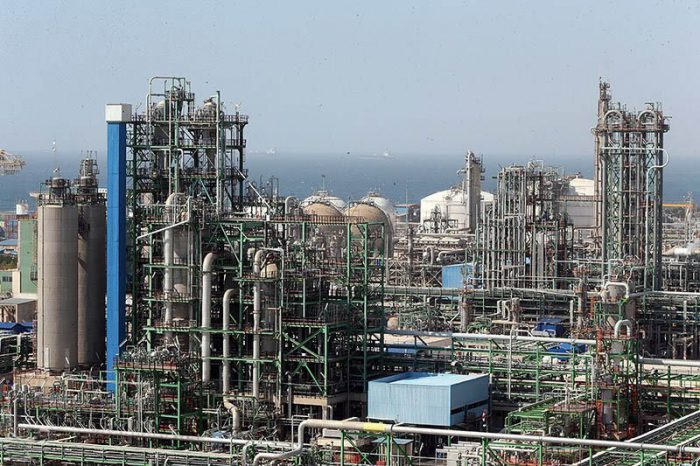Instability set to increase in the Middle East as US ends Iran oil waivers

US Secretary of State Mike Pompeo announced on 22 April that the United States will terminate the ‘significant reduction exceptions’ for existing importers of Iranian oil. From 2 May, the waivers that have been in effect since November will be withdrawn, and countries that continue to import Iranian oil will face sanctions from the US. China, India and Turkey, the principal remaining oil importers from Iran, will feel the greatest effects of this policy.
The end of the waivers will have differential impacts on the three countries. China, the largest importer of Iranian oil, is likely to defy the American demand for three main reasons. First, as a great power and potential challenger to US hegemony, it won’t want to be seen as bowing to American pressure. Second, Beijing is firmly opposed to any form of unilateral sanctions, probably because it fears that one day it may be subjected to the same treatment. Third, China has substantial leverage with the US because of the large volume of bilateral trade and huge Chinese investments in the American economy.
Turkey is geographically contiguous to Iran and has increasingly overlapping strategic interests with it, especially regarding Kurdish secessionism, which threatens both countries; the territorial integrity of Iraq; and shared antipathy towards Saudi Arabia. Iran is the second largest supplier of energy to Turkey and a leading trading partner as well.
Ankara’s relations with Washington have been rocky due to US support for the Kurdish YPG in Syria, which Turkey considers an extension of the terrorist PKK that has been fighting Turkish forces for decades, and the threat of US sanctions over Turkey’s proposed purchase of the S-400 missile defense system from Russia.
All these factors make it imperative for Ankara to maintain cordial relations with Tehran. It is unlikely, therefore, that Turkey will bend completely to American will, although it may reduce its consumption of Iranian oil to partially placate the United States.
The Trump administration’s decision could not have come at a worse time for India. The country in the midst of a bitterly fought election campaign in which any Indian response can become an intensely divisive issue. The sudden announcement from Washington seems to have caught Indian decision-makers unawares.
However, New Delhi is likely to comply with American demands, as India’s relations with the US are very important in the economic sphere. The US is India’s largest trading partner and a major source of foreign investment. It has also become increasingly important in New Delhi’s calculations in the strategic arena because of the convergence of American and Indian interests in China’s containment in the Indo-Pacific region and India’s participation in a structure of security being fashioned in Washington with Japan and Australia as the other partners. Moreover, the civil nuclear relationship with the US is very important for India, as is American support for India’s bid to enter the Nuclear Suppliers Group.
But Indian compliance with American diktat won’t come without costs. Iran has been a major source of India’s energy supply and India is heavily involved in building the Chahbahar port in southern Iran. This port is projected to become a major access route for Indian goods and services to Afghanistan and Central Asia, bypassing hostile Pakistani territory. Tehran is also important for New Delhi in relation to Afghanistan, as both are opposed to the Taliban’s capturing power in that country. Iran is also a great asset for India in its adversarial relationship with Pakistan. Tehran discreetly shares New Delhi’s antipathy towards Pakistan as it considers Islamabad to be Washington’s proxy on issues of strategic importance to Iran.
The final question to ponder is whether Iran will capitulate to American pressure and accept Washington’s demand to revise its position on the nuclear issue and accept an amended version of the nuclear agreement by giving up its right to enrich uranium, curtail if not eradicate its missile program, and radically change its regional policy to fall into line with American preferences.
Such an outcome seems like a Washington pipe dream. Iran has stood up to unprecedented sanctions for four decades and remained unbowed. The current US policy of forcing Tehran to cut its oil exports to zero is only likely to aid Iranian hardliners and end up with Tehran adopting an even more anti-American posture in the Middle East.
While the policy of ending waivers may please Israel and Saudi Arabia, it could become a prelude to another major war in the Middle East. Pushed to the wall by its inability to export oil—which forms the backbone of the Iranian economy—in sufficient quantities, Iran is likely to retaliate by withdrawing from the nuclear accord reached in 2015, resume full-scale nuclear enrichment and move towards weaponisation. That could lead to US air attacks on Iran’s nuclear facilities, thus inviting an Iranian response against American and allied targets in Iraq and around the Gulf.
The instability introduced by this action–reaction phenomenon will be disastrous for the Middle East and could severely disrupt the flow of energy supplies from the Gulf. It’s ironic that some of the authors of America’s disastrous invasion of Iraq, such as National Security Advisor John Bolton, are also the masterminds behind the current American policy towards Iran. This could well lead to another devastating American misadventure in the Middle East, before which the tragic consequences of the Iraqi invasion are likely to pale into insignificance.